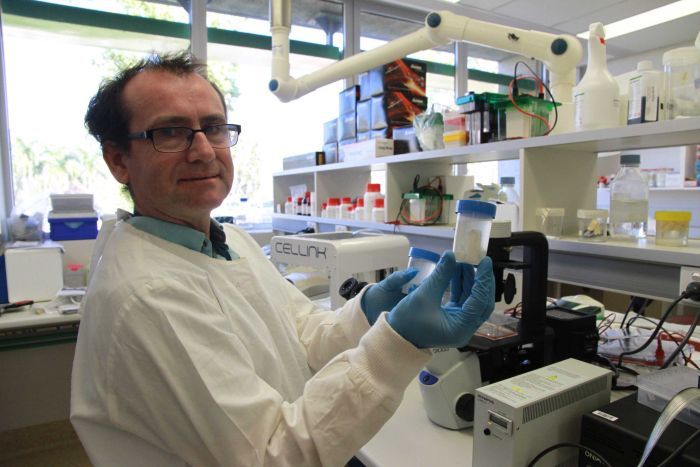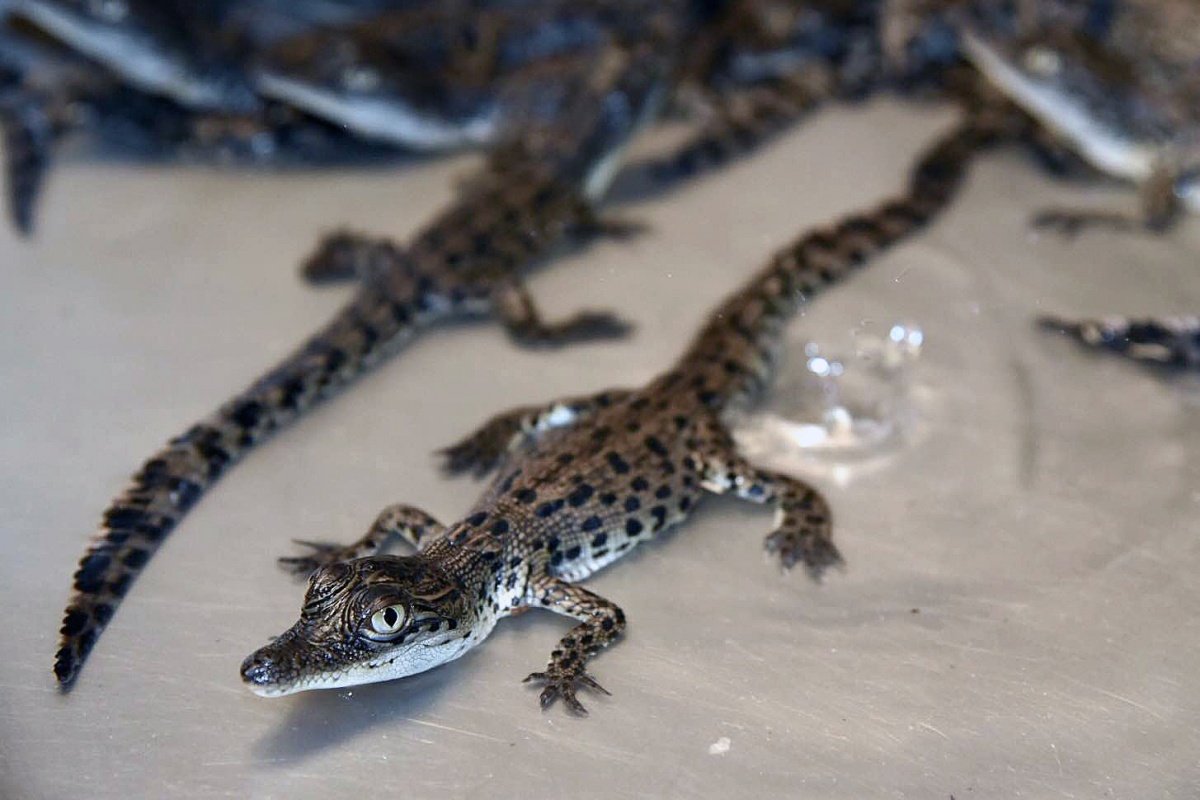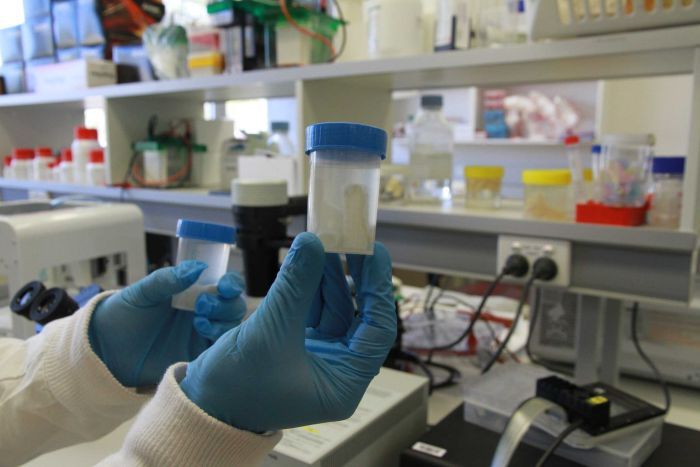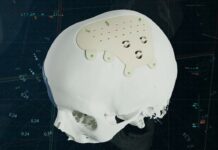Scientists from Central Queensland University (CQUniversity), Australia, are exploring the use of crocodile protein and 3D bioprinting to repair joint injuries.
According to Dr Padraig Strappe, head of this research, the cartilage of crocodiles would enable to promote adult stem cells from fat tissue or bone marrow in order to obtain cartilage. His team is currently working on a process “that extracts valuable growth factors from the cartilage of crocodiles and removes proteins that trigger an immune response in humans.”

The process
Imagine that you suffer from a traumatic injury that leaves a hole between a joining bone. That cartilage does not heal quickly because blood does not reach the bone. Dr. Strappe explained that the cartilage of a crocodile integrates proteins that enable tissue growth.
“With 3D printing we can mimic that hole or that gap so potentially the orthopaedic surgeon could fill in that gap with a little cartilage explant to repair the joint,” he said.
When a 3D bio-print of the crocodile’s cartilage, also called soup, is inserted into the gap, it facilitates the healing of the injury.

A CSIRO study inspired the research of Dr. Strappe. Ten years ago, the study ranked the proteoglycan levels in the cartilage of a number of different species. As for crocodiles, they were on top of the list due to their big articulating joints that require a lot of cartilage to maintain the movement. The cartilage around the rib cage of the crocodile is the most valuable part for the researchers, as it is particularly rich in proteoglycans.

The next stage for Dr. Strappe’s team is to develop a long-term repair to the cartilage so people can return to work and to sport much faster and they don’t have the long-term effects of inflamed joints.
For further information, follow us on our social media and subscribe to our newsletter! Would you like to be featured in the next issue of our digital magazine? Send us an email at contact@3dadept.com





